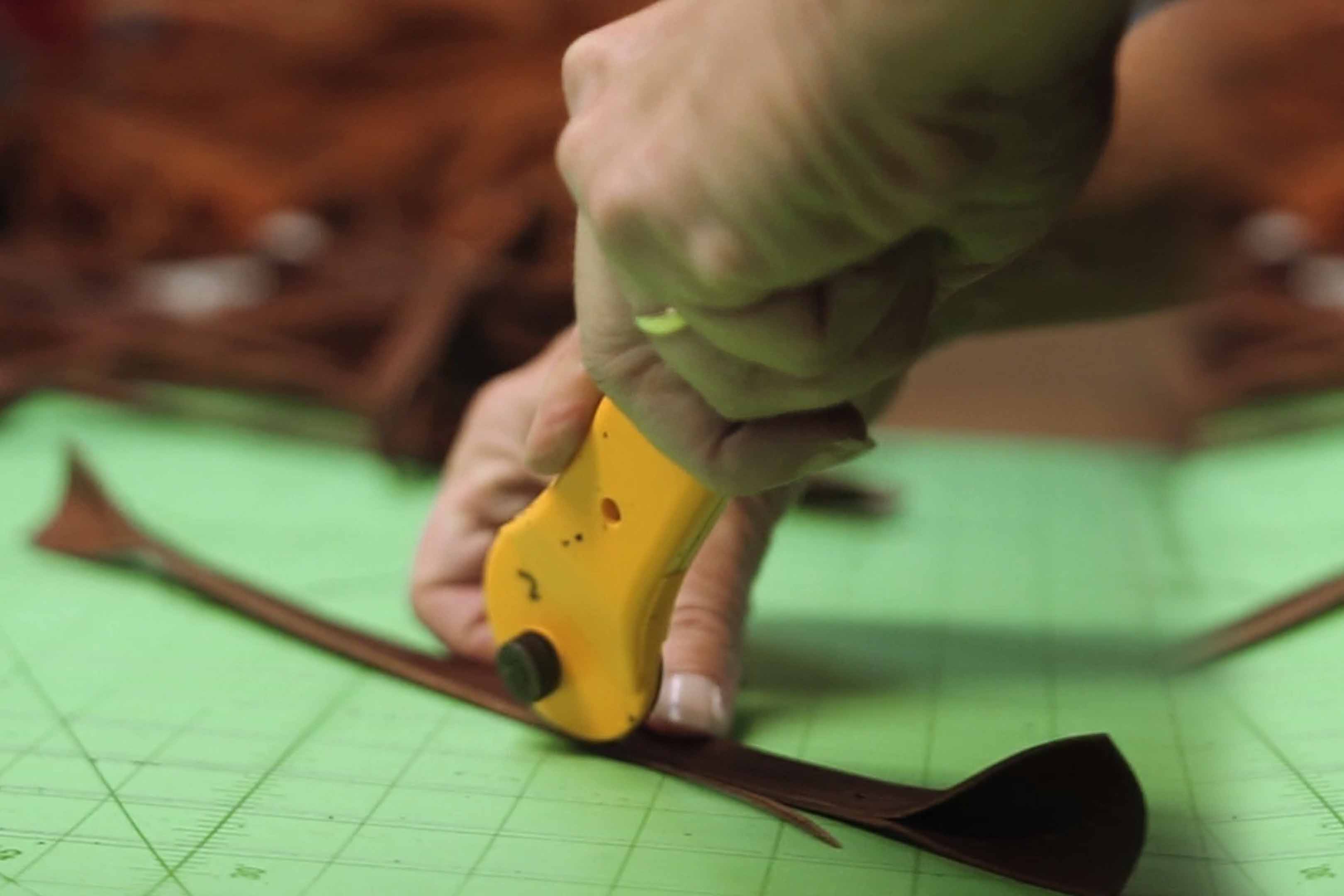

Extraordinary Times: Grainger Customer Stories – R. Riveter
By Grainger Editorial Staff 6/29/20
R. Riveter is a handbag company with a mission. They empower military spouses by providing employment opportunities that move with military families. When Lisa Bradley and Cameron Cruse saw there was a mask shortage during COVID-19, they realized they had been training for this moment for eight and a half years. By deploying a volunteer nation across the country to make masks, it gave their communities a little protection and peace of mind.
Listen to Cameron Cruse, Co-Founder and Chief Creative Officer and Lisa Bradley, Co-Founder and CEO, tell the R. Riveter story.
Cameron: When Lisa and I first started talking about making PPE and jumping into making masks to help our community, we had this huge realization that we had been training for this moment for eight and a half years.
Lisa: Hi, I'm Lisa Bradley, I am one of the co-founders of R. Riveter and [the] CEO, and I'm in Columbus, Ohio.
Cameron: I'm Cameron Cruse, I'm the other co-founder of R. Riveter. I'm currently in Southern Pines, North Carolina, and [I am] the Chief Creative Officer. R. Riveter is a handbag company on a mission. We aim to provide mobile flexible income to military spouses and the modern day woman, so that she has the ability to work wherever the military takes her, or wherever [there's an] opportunity.
Lisa: [This affected] me personally as my sister's a family doctor. I saw how this really impacted families that have medical professionals. [It was] scary for them to go into these facilities without proper personal protection and then go home to their families. Being able to deploy a volunteer nation across the country [that could] provide even a little bit more protection and peace of mind, was one of the most impactful things I could think of doing during this time.
Cameron: We had this influx of people who were so incredibly grateful. We even had people email us directly saying that they can't leave their house, and they're not quite sure what to do. They can't sew, they don't have the resources and could we help them? We were able to provide them with donated masks.
Lisa: One of the best options we had was actually back filling a hospice organization that was [then] able to donate their N95 masks to hospitals and front line facilities. [This allowed them] to protect their nurses and patients with a more [protective] mask [than the type that] we were providing.
Cameron: People are donating time, money and energy into helping their neighbor. [For us] to see that sort of community stand and rise up has been so inspiring.
The information contained in this article is intended for general information purposes only and is based on information available as of the initial date of publication. No representation is made that the information or references are complete or remain current. This article is not a substitute for review of current applicable government regulations, industry standards, or other standards specific to your business and/or activities and should not be construed as legal advice or opinion. Readers with specific questions should refer to the applicable standards or consult with an attorney.






